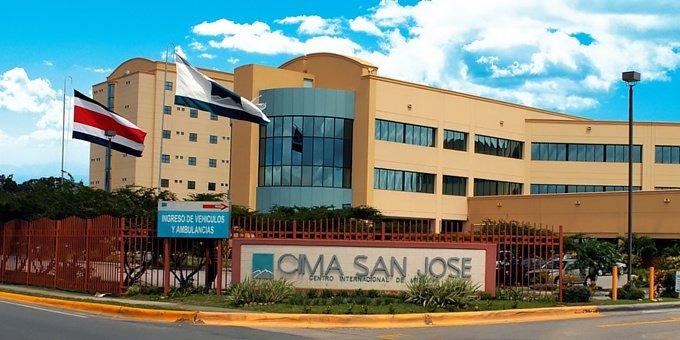In the heart of Central America lies a small yet remarkable nation known for its stunning biodiversity, vibrant culture, and progressive social policies: Costa Rica. Often celebrated as a haven for eco-tourism and adventure, this tropical paradise also stands as a beacon of innovation in the realm of healthcare. At the core of its national identity is a pioneering universal healthcare model that provides a compelling case study for countries around the globe. As we delve into the intricacies of Costa Rica’s healthcare system, we uncover the principles that underpin its success, the challenges it faces, and the lessons it offers in the quest for accessible, quality healthcare for all. Join us on this enlightening journey to explore how a commitment to universal health coverage shapes the lives of Costa Ricans and sets a powerful example for future generations.
Understanding the Foundations of Costa Ricas Universal Healthcare System
Costa Rica’s universal healthcare system, known as the Caja Costarricense de Seguro Social (CCSS), stands as a testament to the nation’s commitment to equitable health access for all its citizens. Established in 1941, the system was designed to deliver comprehensive medical services regardless of an individual’s economic status. Funding comes primarily from payroll taxes, with contributions from both employers and employees, ensuring that the system is sustained by a collective investment in public health. Key features of this pioneering model include:
- Accessibility: Citizens enjoy wide access to medical facilities across urban and rural areas, reducing geographical barriers to care.
- Comprehensive Services: The system covers a range of services, including preventative care, long-term treatments, and emergency services.
- Public Health Initiatives: Regular health campaigns promote wellness and prevention, further enhancing community health outcomes.
Funding and sustainability play vital roles in the success of this healthcare model. The CCSS operates on a balance between public investment and efficient management of resources. A portion of the social security taxes dedicated to healthcare is allocated to various programs to ensure a high standard of care. To illustrate the system’s financial structure, see the following table:
| Source of Funding | Percentage Contribution |
|---|---|
| Employee Contributions | 9.25% |
| Employer Contributions | 26.33% |
| Government Subsidies | 64.42% |
This financial framework not only upholds the system’s integrity but also encourages a culture of health and wellness within the community, establishing Costa Rica as a beacon of public health achievement in the region.

Evaluating the Impact on Public Health and Well-being
The universal healthcare model in Costa Rica has led to transformative changes in public health and overall well-being. By ensuring that all citizens have access to medical services, the country has witnessed significant improvements in key health indicators. The emphasis on preventive care has resulted in a population that is not only healthier but also more informed about health choices. Highlights of these achievements include:
- Increased Life Expectancy: Citizens enjoy a life expectancy that rivals many developed nations.
- Reduction in Infant Mortality: Initiatives targeting maternal and child health have drastically lowered infant mortality rates.
- Access to Treatment: The comprehensive availability of essential medications ensures that chronic conditions are managed effectively.
Moreover, the economic implications of this healthcare model are profound. With preventative healthcare measures taking precedence, the burden on the healthcare system is reduced, leading to lower costs in the long run. This results in more funds being directed toward educational and social programs that further enhance well-being across communities. A simple overview of the financial outcomes may be presented as follows:
| Outcome | Impact |
|---|---|
| Healthcare Savings | Reduced emergency care costs |
| Investment in Education | Better health literacy among citizens |
| Social Equality | Minimal disparity in health access |

Lessons from Costa Rica: Innovations and Best Practices for Global Healthcare
The innovative healthcare system of Costa Rica offers a plethora of insights for nations striving to enhance their medical frameworks. At the core of its success is the emphasis on preventive care, which not only improves the overall health of the population but also reduces long-term healthcare costs. The focus on early intervention has cultivated a culture where communities engage proactively with health services. Key strategies that can be adopted globally include:
- Integration of Health Services: Combining public health with primary care enhances accessibility.
- Community Involvement: Encouraging local participation in health initiatives fosters trust and effectiveness.
- Education and Awareness: Programs aimed at educating citizens about health risks and preventative measures can lead to healthier lifestyle choices.
Moreover, the country has successfully implemented a single-payer system, streamlining funding and minimizing administrative costs. This model affords comprehensive coverage to every citizen, emphasizing equity in health services. Noteworthy features contributing to Costa Rica’s healthcare efficiency include:
| Feature | Impact |
|---|---|
| Universal Access | Ensures that all citizens receive essential medical services regardless of their economic status. |
| Cost Efficiency | Reduces expenses associated with private healthcare, allowing funds to be redirected to public services. |
| Tertiary and Specialty Care | Provides advanced treatment options while maintaining a strong focus on primary care. |

Future Directions: Enhancing Sustainability and Accessibility in Healthcare Services
As global discussions on healthcare reform intensify, the need for sustainable and accessible healthcare models has become increasingly urgent. Costa Rica’s universal healthcare system serves as a beacon of innovation, demonstrating how sustainability can be ingrained into healthcare practices. This includes integrating renewable energy into healthcare facilities, utilizing telemedicine to reduce travel emissions, and prioritizing preventative care that minimizes the environmental impact of treatments. By examining these practices, other nations can adapt similar strategies, fostering a global shift towards greener, more responsible healthcare systems.
Accessibility is not merely about physical access; it also encompasses the affordability and cultural suitability of healthcare services. Costa Rica emphasizes a holistic approach by focusing on community-based healthcare initiatives that address the intrinsic needs of diverse populations. Key aspects include:
- Cultural Competency Training: Ensuring that healthcare providers understand and respect the cultural backgrounds of their patients.
- Transportation Support: Offering services and resources to assist patients in reaching facilities safely and conveniently.
- Linguistic Accessibility: Providing translation and interpretation services to cater to non-Spanish speaking residents.
These forward-thinking strategies not only promote equity in healthcare access but also enhance the overall efficiency of Costa Rica’s healthcare system. By engaging with community leaders and incorporating feedback, the model continues to evolve, proving that a sustainable and accessible healthcare framework is within reach for any nation willing to invest in its future.
Wrapping Up
As we conclude our exploration of Costa Rica’s pioneering universal healthcare model, it becomes clear that this vibrant nation has woven health care into the very fabric of its social values. From its roots in community support to the innovative policies that have evolved over the decades, Costa Rica offers invaluable lessons in accessibility, equity, and prevention. While challenges remain and the system continues to adapt to emerging needs, the commitment to prioritize the health and well-being of all its citizens serves as a beacon for countries striving for a similar vision. As we reflect on this journey, let us carry forward the understanding that true health care transcends borders, and the Costa Rican model may very well inspire global advancements in health equity and sustainability for generations to come.

